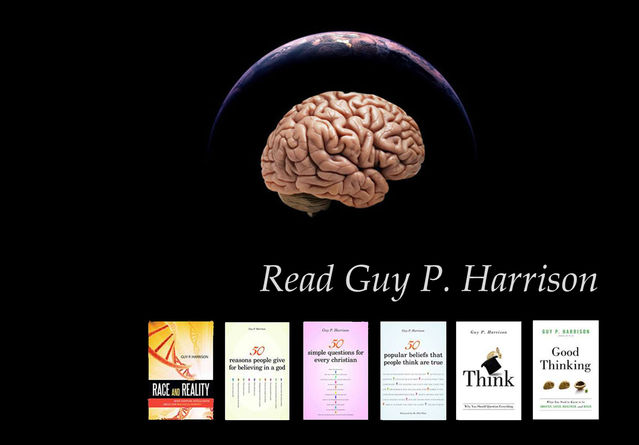Spirituality
Doctor Prescribes a Reality Check for Homeopathy
Why are homeopathic remedies so popular and do they work?
Posted November 22, 2015
Homeopathy currently is booming in the United States. Homeopathic products can be found on the shelves of many pharmacies, grocery stores, and even pet shops. But why? Many credible medical experts, chemists, and physicists not only declare that homeopathy doesn’t work, but they can’t even imagine how it could work. The core claims—“like cures like”, water remembers active ingredients, and dilution to the point of elimination makes it more powerful not less—have never been verified by the scientific process. Skeptics have long argued that claims of homeopathy’s effectiveness are likely due to the placebo effect and ignorance about our body’s defenses. No doubt countless homeopathic treatments have stolen rightful credit from time and the human immune system.
John Byrne is a practicing internist, pediatrician, and assistant professor at Oakland University’s William Beaumont School of Medicine in Michigan. He also is the creator of an exceptional website aimed at combatting medical quackery. Skepticalmedicine.com is a comprehensive resource on many alternative medicine claims for healthcare professionals and the public. Here Byrne answers five basic questions about homeopathy. His comments may enlighten both believers and skeptics.

Why does homeopathy persist? How do you explain its continuing popularity?
Dr. Byrne: It is hard to say for sure, but it is likely due to a lack of information. Most people have no idea what homeopathy is. I make a point to ask my patients and medical students what they know of homeopathy. Almost all of them say something like “herbs” and “natural remedies."
There is also an appeal to antiquity. It is an established practice dating back to the late 1700s. Like chiropractic, homeopathy developed as an institution in the pre-scientific medicine days alongside mainstream medicine. It has since evolved into big business with strong marketing. Homeopathic products are sold in pharmacies right next to actual medicines.
Homeopaths present themselves as legitimate practitioners with diplomas, lab coats and technical sounding jargon. Much is made over the selection process of remedies. However the dilution process then removes all of the ingredients. Very scientific sounding terminology hides the fact that the end result is nothing but water. To the unsuspecting patient, it all seems very legitimate. The average person has no idea that it is based on magical thinking.
Many conditions seem to respond to nothing-based treatments for a variety of reasons. For instance, most viral illnesses are self-limited and would get better regardless of the treatment. Some illnesses naturally wax and wane, giving the illusion that the remedies work. Since homeopathic remedies actually contain nothing, practitioners can honestly say that their treatments have no side-effects. These qualities can be very compelling to the unsuspecting patient.
Also, the experience of visiting a homeopath can be fulfilling, especially if the patient has a preexisting belief in homeopathy. A 2006 study showed that patient satisfaction was related to the patients' "openness to the mind-body connection", longer visits—relative to “regular” doctor visits—detailed interviews, empathy expressed by the homeopath, remedy selection rituals and the idea of individualized treatment plans. The patient feels cared for, even if there is nothing in the selected remedy.
Perhaps medical doctors could learn from this to help improve the experience of an office visit when delivering actual science-based medicine.
A few drops of water or a sugar pill are harmless so where is the danger? Why should anyone care if some people trust in homeopathic treatments?
The danger comes from the fact that homeopaths and patients think that the remedies can actually do something beyond giving a false sense of control over their ailments. Patients who try homeopathy for self-limited conditions or subjective symptoms will likely develop a belief that homeopathy is a legitimate science.
This belief may lead them to choose homeopathy when faced with serious disease. Patients with AIDS and cancer may put their trust in water and sugar pills instead of anti-retroviral medicines, surgery or chemotherapy. Homeopathic malaria treatments cannot protect people from malaria.
Many homeopaths are also anti-vaccine. They may actively encourage people to avoid science-based medicine. Most are probably sincere in their beliefs and have good intentions. That makes them potentially even more dangerous than frauds because most patients can feel their sincerity. Their trust in the person will influence their belief in homeopathy. And of course, vaccine refusal in favor of homeopathic preventative measures can have tragic results. The harm is that belief in nonsense leads people away from life-saving care.
There is also an economic impact. In the year 2000, Americans spent about 1.5 billion dollars on homeopathic products.
You make a significant effort to educate the public about medical quackery with your website, Skepticalmedicine.com. But it seems most doctors ignore this problem. Do you feel that doctors have a responsibility to push back against fraud and delusions?
Of course we do. However, I bet that most medical doctors do not even know what homeopathy actually is. As I stated earlier, most students and doctors that I talk to think that it is herbal medicine. Since herbal medicine may have actual medical uses, in some respects, and since most of us have never been educated about herbal medicines, I think that doctors tend to shy away from criticizing or questioning it.
However, when I explain to them the notion of “like cures like” and the process of diluting something until it is gone [“law of infinitesimals”], they usually respond with disbelief. By that I mean, they often don’t believe me. One student said something to the effect of, “That’s insane! How could anyone fall for that?”
Doctors have the responsibility to communicate accurate information based on science to their patients and, I would argue, to the public. Although true believers will likely never be convinced by reason and evidence, most people do not have a deeply held belief in homeopathy. It is the average person that we should be trying to educate so that they may be equipped to avoid nonsense.
Should the FDA regulate homeopathic products and treatments?
Ideally, yes. In fact, many people buy homeopathic products with the assumption that stores wouldn’t be able to sell them if the FDA didn’t think that they were good.
The FDA is not able to regulate products identified as supplements. Some homeopathic products are labeled as such and therefore will avoid regulation. However, most are marketed as homeopathic “drugs” and therefore fall under FDA regulation. The FDA has basically ignored this industry for decades. In 2015, there has been a major political drive led by organizations such as the Center for Inquiry to hold the FDA accountable in regulating these products. I suspect that if this happens, then many homeopathy companies would likely reclassify many of their products as supplements.
In 1994 Congress passed the Dietary Supplement Health and Education Act. This politically motivated act prohibits the FDA from regulating products labeled as “supplements”. Homeopathy companies can sell their products as long as they do not contain actual medications and do not make specific health claims. Companies have become very creative in their marketing with phrases like “supports heart health” or “boosts the immune system”.
The spirit of such claims seems obvious to the consumer. “Supports heart health” should mean “lowers the risk of heart disease”. “Boosts the immune system” should mean “lowers your risk of infection”. However, these phrases are so nebulous that the FDA does not recognize them as actual claims.
Today, many homeopathic products do make specific claims. For instance, “Oscillococcinum” is claimed to reduce the severity and duration of influenza. If the makers of this product were required to provide good evidence for this claim, then it would be off the market immediately.
The FDA’s job is to protect the public from harmful health products. With homeopathy, there really is no product. Seriously, the “products” are water, sugar and magical thinking. Since there is no direct harm that can come from homeopathy the FDA can only go after specific claims.
I hope that someday we will see regulation based on the spirit of the claims rather than the semantics of the claims. At the very least, the FDA should make it very clear to the public that these products contain no actual ingredients. Unfortunately, homeopathy and the supplement industry have powerful political allies. At least in the near future, I doubt that the FDA will gain the kind of teeth that it should have when dealing with this industry.
What is your strategy for getting a patient to reconsider her or his belief in homeopathy?
The few people who have actually visited a homeopath and had a pleasant experience deserve to have a rewarding experience at my office too. Doctors should be aware that much of the perceived benefit from a visit with any practitioner comes from the feeling of being cared for. I try to make our brief encounters feel meaningful and build trust. In a busy day, sometimes it doesn’t work out as well as it should, but I try.
The majority of patients are not invested in a deeply held belief in homeopathy. They are simply unaware of what homeopathy actually is. Typically, a patient will come in with some homeopathic product that they got at the drug store and ask me if it is any good. In that case, it is very easy to get them to decide for themselves that the product is useless. First, I just objectively explain Hahnemann’s idea of “like cures like”. That usually causes them to get a little skeptical. Then I explain the process of diluting a remedy until it is no longer even present. At that point, they become very skeptical and ask the million dollar question: “But how could that possibly work?” I then tell them that homeopaths believe that the water remembers the stuff that was diluted out of it. Most of my patients see right through that and decide for themselves right then and there that it is nonsense.
People who truly believe in homeopathy are not swayed by our brief conversation in the exam room. For them, I focus on enforcing science-based practices and let them have their homeopathy too. However, I try my best to plant a seed of critical thinking. Maybe they will begin questioning their belief at some point.
–Dr. John Byrne is the creator of Skepticalmedicine.com. Read more details about the problems with homeopathy on his website.
–Guy P. Harrison is the author of six highly acclaimed books that promote science and reason, including: Good Thinking, 50 Popular Beliefs That People Think are True, and 50 Simple Questions for Every Christian





